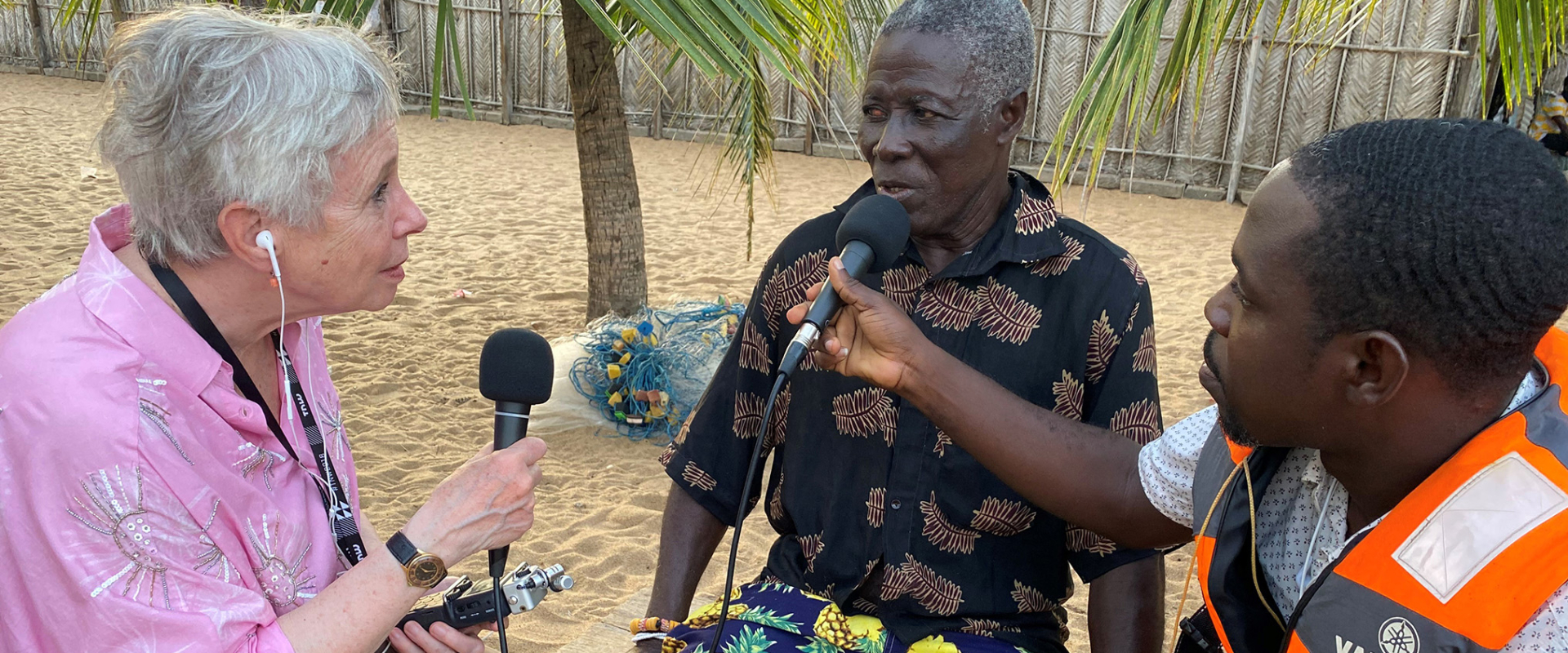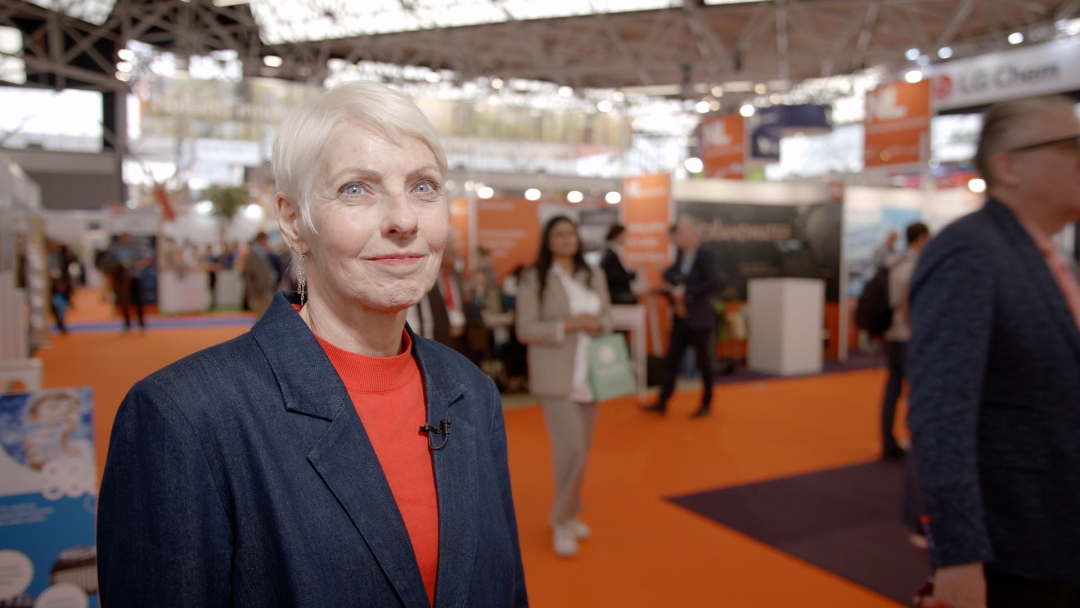
Navigating global water challenges with systems thinking
The Waterproof Podcast is the latest projects of the Partners for Water (PFW) Programme, an initiative of the Dutch Government focused on enhancing international water security. The Podcast fosters international knowledge exchange around water security, providing tools for systems changes and stimulating co-creation.


Through six episodes, the Waterproof Podcast travels the globe sharing uplifting stories about how today’s water crises are being tackled through smart ideas, local knowledge, and international partnerships. Celebrating the release of the final episode, Liliane Geerling, PFW Programme Coordinator, elaborates on how the Waterproof Podcast is a strategic instrument to stimulate systems-thinking solutions to enhance global water security.
Systems approach for coastal protection
A powerful illustration of the importance of a systems approach can be found in coastal protection. As Geerling points out, "If you build a hard dyke, it only fulfils one function: protecting the land from water." However, nature-based solutions offer a far broader range of benefits. "Mangroves, for example, can be deployed to protect coastlines in tropical regions," she elaborates. "These natural systems not only strengthen coastal defences but also enhance biodiversity, serve as nurseries for fish and other marine animals, and provide local communities with food and income."
To ensure the success of these nature-based solutions, a system-wide approach is essential. This involves rethinking traditional practices, with governments and infrastructure developers adopting new approaches, including actively involving local populations. "Local communities play a crucial role in protecting mangroves," Geerling emphasises. "They must be central to the management and sustainable use of mangroves, and should directly benefit from them. Achieving this requires a mind shift among all stakeholders."
The first episode of the Waterproof Podcast delves into mangroves as well as other nature-based solutions.
Systems approach for food security
Geerling highlights the importance of a systems approach with an example from the food production sector: "Improving water security within the food industry requires a chain-wide approach. Consider a river basin where different avocado growers are operating, each using significant amounts of water. Achieving sustainable water use requires transformative changes throughout the entire chain."
Across the globe, organisations and individuals are pioneering sustainable water use by making changes throughout the food value chain. In the second episode of the Waterproof Podcast, the spotlight is on salinity and the innovative solutions being developed to combat the growing threat that salt poses to food security.
Systems approach at a local level
Geerling emphasises that the only way to drive meaningful change is through co-creation with local partners. “It’s essential to work together and co-develop solutions that are tailored to the local culture and context. Otherwise, it won't work," she stresses.
The foundation of successful long-term water initiatives lies in collaboration with local communities and partners, ensuring their priorities and knowledge are central to project design. The third episode of the Waterproof Podcast delves into inspiring examples of locally-led water projects, showcasing the power of this collaborative approach in creating sustainable, impactful solutions.
Systems change for long-lasting water impact
Once a sustainable, locally-led water intervention has been developed and implemented, one crucial element cannot be forgotten: operation and maintenance. This phase is essential to ensure that water solutions deliver their intended long-term impact, yet it is often neglected. As a result, many water infrastructure projects fall into the so-called build-neglect-repair cycle – an approach that undermines the effectiveness of the solutions and increase the project costs in the long run. Fortunately, there is growing recognition of this issue, and efforts are being made to prioritise the ongoing maintenance and sustainability of water interventions.
The fourth episode of the Waterproof Podcast highlights some international examples promoting lasting operation and maintenance of water management and infrastructure projects.
Systems approach for biodiversity prevention
Biodiversity is the cornerstone of all life on Earth. However, conventional water management and food production practices are leading to a rapid decline in global biodiversity, with our food production systems causing 70% of land-based biodiversity loss. "The way we currently handle scarce resources like water and biodiversity is not working, so we must find other ways,” stresses Geerling.
With the Waterproof podcast, PFW wants to further stimulate this conversation and encourage the inclusion of biodiversity prevention measures in the water and food decision-making. The fifth episode of the Waterproof Podcast features the Water-Biodiversity-Food nexus.
Greening finance for large-scale impact
Systems change and financing are pivotal in achieving large-scale impact, particularly when it comes to integrating nature into economic decision-making. To drive meaningful transformation, a shift in the financial world is essential. According to Geerling, "Financiers must stop financing projects that are not water inclusive. Greening finance is crucial. We can carry out pilots with natural solutions in a river basin but, ultimately, financiers are the ones that can scale up these solutions."
Transitioning to a sustainable global economy requires integrating nature’s value into financial decision-making. PFW collaborates with international financial institutions such as the World Bank to accelerate fundamental change in business and finance, fostering an economy that incorporates the value of nature. The sixth and final episode of the Waterproof Podcast explore ways to incorporate nature’s true value within water projects.
Co-creation and knowledge sharing
Each episode of the Waterproof podcast challenges listeners to see water as a part of a larger, interconnected system that requires integral, collaborative approaches. "All six topics are interconnected and directly relate to water security. By approaching and working with them in an integrated manner, it becomes easier to understand their interdependencies and design holistic solutions," Geerling says.
With the Waterproof podcast, PFW is pioneering a new approach to share knowledge, providing tools for systemic change, and stimulating co-creation around water security. "We've even received responses from international lecturers who want to use the podcast in their lessons,” says Geerling. “That's exactly what we aim for – broader reach, deeper impact, and the collective development of solutions."



